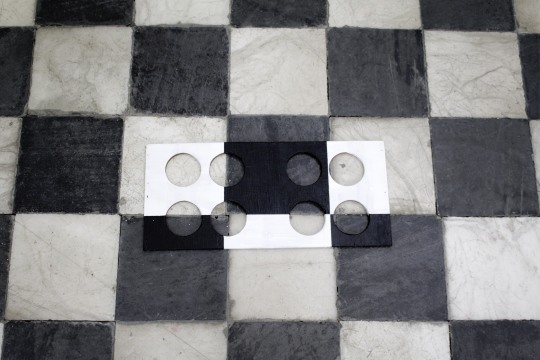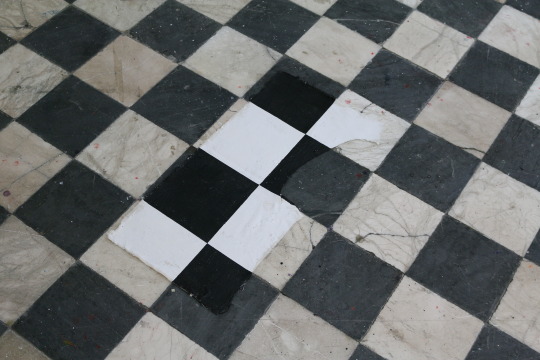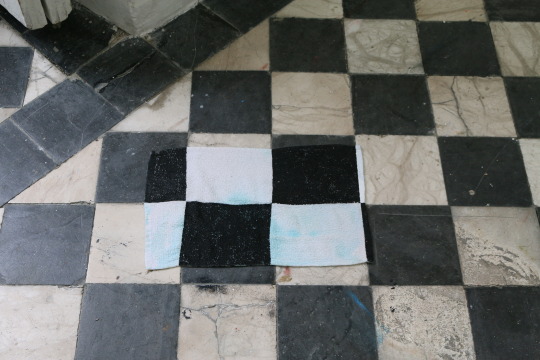#christopher f. chabris
Explore tagged Tumblr posts
Text
To complete this assignment, read and watch: “How to write a rhetorical analy
To complete this assignment, read and watch: “How to write a rhetorical analy
To complete this assignment, read and watch: “How to write a rhetorical analysis” The Rhetorical Triangle Web Page (Links to an external site.)Links to an external site. Professor Pearson’s Lecture on Rhetorical Analysis (Links to an external site.)Links to an external site. Next, carefully read Christopher F. Chabris’ and Daniel J. Simons’ “Why Our Memory Fails Us.” (Links to an external…
View On WordPress
0 notes
Text
To complete this assignment, read and watch: “How to write a rhetorical analy
To complete this assignment, read and watch: “How to write a rhetorical analy
To complete this assignment, read and watch: “How to write a rhetorical analysis” The Rhetorical Triangle Web Page (Links to an external site.)Links to an external site. Professor Pearson’s Lecture on Rhetorical Analysis (Links to an external site.)Links to an external site. Next, carefully read Christopher F. Chabris’ and Daniel J. Simons’ “Why Our Memory Fails Us.” (Links to an external…
View On WordPress
0 notes
Photo







Sergio Verastegui Pellejos Sueltos Curadoría de Francesco Giaveri y Tiago de Abreu Pinto
Inauguración: 17/09/2016
Yakov Petrovich Goliadkin se detiene en el muelle Fontanka a observar un desconocido. Nota algo familiar en su cara y, sin otro motivo, empieza a seguirle. El extraño toma la dirección de su casa. La misteriosa figura se detiene frente a la puerta, su criado le abre y le deja pasar. Goliadkin le sigue trepidante ya casi corriendo; sin despojarse del sombrero le sigue por el pasillo y se detiene en el umbral de su habitación.
Finalmente, “el desconocido estaba sentado en su propia cama, sin quitarse el gabán y el sombrero; y con una ligera sonrisa, frunciendo levemente el entrecejo, le dirigía un amistoso movimiento de cabeza. El señor Goliadkin quiso gritar, pero no pudo; protestar de alguna manera, pero le fallaron las fuerzas. Se le erizó el cabello y se desplomó exánime del horror que sentía. ¿Y cómo no? El señor Goliadkin había reconocido enteramente a su amigo nocturno. Su amigo nocturno no era otro que él mismo, el propio señor Goliadkin, otro señor Goliadkin, pero absolutamente idéntico a él... En una palabra, su doble…” (1).
La inquietante circunstancia de la novela El Doble de Dostoievski nos pareció un preludio apropiado para la disección del trabajo del peruano Sergio Verastegui (Lima, 1981). El artista propone experimentar con la cognición y la percepción en este proyecto pensado para Salón y titulado Pellejos Sueltos. Organiza una vuelta por matices inquietantes de lo aparentemente familiar. Se podría decir que todo lo que estaba destinado a permanecer oculto, sale ahora a la luz. La extrañeza de formas ya vividas deja flotar libremente su carga de significados.
Como por el extraño caso del ‘gorila invisible’ (2), esta exposición apunta a lo que se disimula desplazando la atención del espectador. Los cuadrados blanco y negro de los azulejos del suelo de Salón se han multiplicado en forma de despojos. Trozos de tejidos esparcidos y acumulados.
El término ‘persona’ en su origen remitía a la ‘máscara’. Es solo a través de la máscara que el individuo adquiere un rol y una identidad en el mundo. Así, para los romanos, el individuo era identificado por un nombre que expresaba su pertenencia a una estirpe definida e identificable por la máscara de cera de un antepasado que se conservaba en el atrio de casa. Paulatinamente, la persona es reducida a su ‘personalidad’ aquella que le representa en los dramas sociales (3). Por otro lado, “ponerse la máscara de un animal es una manera de enfrentarse a la locura, de actuar contra el destino” (4).
Verastegui duplica el suelo del espacio expositivo de una forma que emula y se camufla, sin embargo no se reduce a la superficie sino que abre intersticios en una estratificación infinita que reclama atención. Sus máscaras no ocultan sino que invitan a mirar detenidamente los materiales, interrogando sus historias y sus huellas. Goliadkin en un momento en la novela, en conversación con el oficial Antón Antonovich, desarrolla la cuestión fundamental del proceso perceptivo, ya que “no es rara la gente que lleva máscara, y que hoy día es difícil reconocer al hombre que se oculta tras ella” (5). Así como es difícil toparse con un gorila en una cancha de baloncesto y aún más complicado es tratar de adivinar quién está detrás de la máscara del gorila y por qué no juega a la pelota sino que trata desesperadamente de llamar la atención de un espectador al que solamente le preocupa contar.
Verastegui bucea entre formas cuyas funciones efímeras se repiten cambiando sutilmente de piel según las circunstancias. De este modo, intenta circunscribir una situación precisa a través de materiales que va produciendo o recolectando. Vemos objetos efímeros y urgentes contenedores de significados culturales amplios. Artefactos que configuran un periplo cuyo itinerario parece no acabarse nunca, una aventura que pasa continuamente de un azulejo negro a uno blanco y viceversa.
__________________
(1) Fiodor M. Dostoievski, El Doble, traducción Juan López-Morillas, Alianza, Madrid, 1985, p. 27
(2) En el célebre experimento psicológico, realizado por Daniel J. Simons y Christopher F. Chabris, se pide observar un vídeo donde dos equipos, uno vestido de blanco y otro de negro, se pasan la pelota. El espectador tiene que contar el número de pases que los jugadores del equipo con camiseta blanca efectúan entre ellos. Finalizado el vídeo, se pregunta al espectador si se ha percatado de que había un gorila entre los jugadores. El resultado suele ser que casi menos de la mitad percibe al gorila que salta entre los jugadores de los dos equipos. Afortunadamente, la mayoría de los participantes suele acertar el número de pases realizados. Según Simons: “cuando más te concentras en lo que esperas ver, menos probable es que veas lo inesperado. (…) Existe una cantidad ilimitada de información en el mundo, pero nuestra capacidad para atender a la información es bastante limitada. Si estás limitado en el número de cosas a las que puedes prestar atención y la atención es la puerta de acceso a la consciencia, solo puedes ser consciente de un subconjunto limitado de lo que hay ahí fuera”. Daniel J. Simons citado en http://www.xatakaciencia.com/psicologia/lo-limitado-de-nuestra-atencion-ni-siquiera-somos-capaces-de-ver-un-gorila
(3) Giorgio Agamben, Desnudez, Adriana Hidalgo, Buenos Aires, 2011, p. 67
(4) VVAA, Peter Fischli David Weiss. ¿Son los animales personas?, MNCARS [Cat Expo], Madrid, 2009, p.67
(5) El Doble, op. cit, p.41
4 notes
·
View notes
Text
Mandela Effect Solved?
I found a New York Times article Your Brain Lies to You by Sam Wang and Sandra Aamodt, their article talks about how the brain believes false information. When we remember things it first is stored in the hippocampus, after it goes through their it will transfer to the cerebral cortex and than the information will be separated from the original thought. In the article they call it source amnesia “can also lead people to forget whether a statement is true. Even when a lie is presented with a disclaimer, people often later remember it as true.” To argue their point they used what we learned back in high school that when we learned about the brain and its functions. Since the information we learned in high school I would think the audience is for people who are ages 16-25.
The other article I found also from New York Times is Why Our Memory Fails Us by Christopher F. Chabris and Daniel J. Simons. Their article mentions that we challenge our memory and just assume something without fact checking it. Another thing they talked about people having an overconfidence memory where the mind recalls information easily therefore we think it’s right because out brian says so. This article audience was aimed at baby boomers age group I think because they used most of their examples from that time period.
I think these articles make sense in their responses on why we miss interpret things as a individual. The article Your Brain Lies to You does bring up good points with saying we do believe what people tell us usually the first time around because we store that information first and remember it.
Although these articles are arguing against the thought towards the Mandela Effect it gives off a statement that will make you question if the theory is even true. They mention the structures of the brain and how our brain is overconfidence. But, it also makes sense rather than believing something we cannot prove such as parallel universes. These articles do seem to be mythbusters, but it still makes me question why is there actual things and books that do provided some source of evidence that the Mandela effect could be true?
0 notes
Text
To complete this assignment, read and watch: “How to write a rhetorical analy
To complete this assignment, read and watch: “How to write a rhetorical analy
To complete this assignment, read and watch: “How to write a rhetorical analysis” The Rhetorical Triangle Web Page (Links to an external site.)Links to an external site. Professor Pearson’s Lecture on Rhetorical Analysis (Links to an external site.)Links to an external site. Next, carefully read Christopher F. Chabris’ and Daniel J. Simons’ “Why Our Memory Fails Us.” (Links to an external…
View On WordPress
0 notes
Text
To complete this assignment, read and watch: “How to write a rhetorical analy
To complete this assignment, read and watch: “How to write a rhetorical analy
To complete this assignment, read and watch: “How to write a rhetorical analysis” The Rhetorical Triangle Web Page (Links to an external site.)Links to an external site. Professor Pearson’s Lecture on Rhetorical Analysis (Links to an external site.)Links to an external site. Next, carefully read Christopher F. Chabris’ and Daniel J. Simons’ “Why Our Memory Fails Us.” (Links to an external…
View On WordPress
0 notes
Text
To complete this assignment, read and watch: “How to write a rhetorical analy
To complete this assignment, read and watch: “How to write a rhetorical analy
To complete this assignment, read and watch: “How to write a rhetorical analysis” The Rhetorical Triangle Web Page (Links to an external site.)Links to an external site. Professor Pearson’s Lecture on Rhetorical Analysis (Links to an external site.)Links to an external site. Next, carefully read Christopher F. Chabris’ and Daniel J. Simons’ “Why Our Memory Fails Us.” (Links to an external…
View On WordPress
0 notes
Text
To complete this assignment, read and watch: “How to write a rhetorical analy
To complete this assignment, read and watch: “How to write a rhetorical analy
To complete this assignment, read and watch: “How to write a rhetorical analysis” The Rhetorical Triangle Web Page (Links to an external site.)Links to an external site. Professor Pearson’s Lecture on Rhetorical Analysis (Links to an external site.)Links to an external site. Next, carefully read Christopher F. Chabris’ and Daniel J. Simons’ “Why Our Memory Fails Us.” (Links to an external…
View On WordPress
0 notes
Text
To complete this assignment, read and watch: “How to write a rhetorical analy
To complete this assignment, read and watch: “How to write a rhetorical analy
To complete this assignment, read and watch: “How to write a rhetorical analysis” The Rhetorical Triangle Web Page (Links to an external site.)Links to an external site. Professor Pearson’s Lecture on Rhetorical Analysis (Links to an external site.)Links to an external site. Next, carefully read Christopher F. Chabris’ and Daniel J. Simons’ “Why Our Memory Fails Us.” (Links to an external…
View On WordPress
0 notes
Text
To complete this assignment, read and watch: “How to write a rhetorical analy
To complete this assignment, read and watch: “How to write a rhetorical analy
To complete this assignment, read and watch: “How to write a rhetorical analysis” The Rhetorical Triangle Web Page (Links to an external site.)Links to an external site. Professor Pearson’s Lecture on Rhetorical Analysis (Links to an external site.)Links to an external site. Next, carefully read Christopher F. Chabris’ and Daniel J. Simons’ “Why Our Memory Fails Us.” (Links to an external…
View On WordPress
0 notes
Text
To complete this assignment, read and watch: “How to write a rhetorical analy
To complete this assignment, read and watch: “How to write a rhetorical analy
To complete this assignment, read and watch: “How to write a rhetorical analysis” The Rhetorical Triangle Web Page (Links to an external site.)Links to an external site. Professor Pearson’s Lecture on Rhetorical Analysis (Links to an external site.)Links to an external site. Next, carefully read Christopher F. Chabris’ and Daniel J. Simons’ “Why Our Memory Fails Us.” (Links to an external…
View On WordPress
0 notes
Text
To complete this assignment, read and watch: “How to write a rhetorical analy
To complete this assignment, read and watch: “How to write a rhetorical analy
To complete this assignment, read and watch: “How to write a rhetorical analysis” The Rhetorical Triangle Web Page (Links to an external site.)Links to an external site. Professor Pearson’s Lecture on Rhetorical Analysis (Links to an external site.)Links to an external site. Next, carefully read Christopher F. Chabris’ and Daniel J. Simons’ “Why Our Memory Fails Us.” (Links to an external…
View On WordPress
0 notes
Text
To complete this assignment, read and watch: “How to write a rhetorical analy
To complete this assignment, read and watch: “How to write a rhetorical analy
To complete this assignment, read and watch: “How to write a rhetorical analysis” The Rhetorical Triangle Web Page (Links to an external site.)Links to an external site. Professor Pearson’s Lecture on Rhetorical Analysis (Links to an external site.)Links to an external site. Next, carefully read Christopher F. Chabris’ and Daniel J. Simons’ “Why Our Memory Fails Us.” (Links to an external…
View On WordPress
0 notes
Text
To complete this assignment, read and watch: “How to write a rhetorical analy
To complete this assignment, read and watch: “How to write a rhetorical analy
To complete this assignment, read and watch: “How to write a rhetorical analysis” The Rhetorical Triangle Web Page (Links to an external site.)Links to an external site. Professor Pearson’s Lecture on Rhetorical Analysis (Links to an external site.)Links to an external site. Next, carefully read Christopher F. Chabris’ and Daniel J. Simons’ “Why Our Memory Fails Us.” (Links to an external…
View On WordPress
0 notes
Text
To complete this assignment, read and watch: “How to write a rhetorical analy
To complete this assignment, read and watch: “How to write a rhetorical analy
To complete this assignment, read and watch: “How to write a rhetorical analysis” The Rhetorical Triangle Web Page (Links to an external site.)Links to an external site. Professor Pearson’s Lecture on Rhetorical Analysis (Links to an external site.)Links to an external site. Next, carefully read Christopher F. Chabris’ and Daniel J. Simons’ “Why Our Memory Fails Us.” (Links to an external…
View On WordPress
0 notes
Text
To complete this assignment, read and watch: “How to write a rhetorical analy
To complete this assignment, read and watch: “How to write a rhetorical analy
To complete this assignment, read and watch: “How to write a rhetorical analysis” The Rhetorical Triangle Web Page (Links to an external site.)Links to an external site. Professor Pearson’s Lecture on Rhetorical Analysis (Links to an external site.)Links to an external site. Next, carefully read Christopher F. Chabris’ and Daniel J. Simons’ “Why Our Memory Fails Us.” (Links to an external…
View On WordPress
0 notes